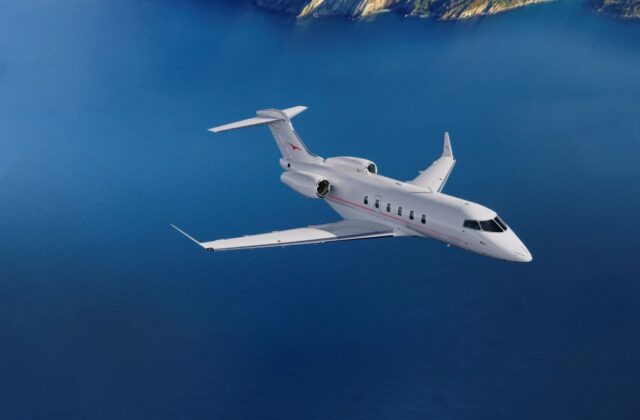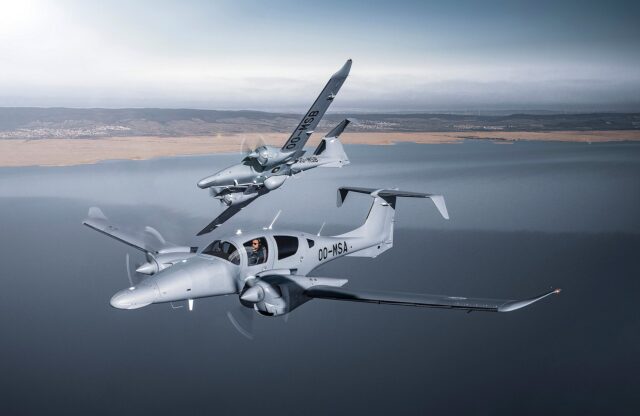High-speed on-board connectivity a top priority for VVIP business jet customers

December 27, 2024

The VVIP business jet market continues to evolve rapidly, with technological advancements and evolving customer expectations placing on-board connectivity as a top priority.
On-board connectivity has emerged as a key trend for the VVIP aviation sector, according to RoyalJet CEO, Syed Shafiul. Speaking earlier this month during a panel session at MEBAA in Dubai, he said that while historically internet speeds on business jets were slow and costly, limiting their functionality, “advancements such as Ka-band satellite technology have significantly improved bandwidth and coverage, albeit at a high cost.” However, he added that Low Earth Orbit (LEO) satellite systems, such as those offered by Starlink and OneWeb, are set to “revolutionise this space by offering faster speeds at lower costs, creating new opportunities for operators and customers alike.”
The challenge now lies in balancing these advancements with customer-friendly pricing structures and ensuring consistent global coverage. Shafiul also noted that “catering to diverse generational needs—ranging from high-speed streaming to gaming—underscores the growing demand for robust connectivity.”
Shafiul was joined by Boeing Business Jets (BBJ) marketing director, Oren Katzen, who agreed that “connectivity is the biggest influence on how a customer perceives their in-flight experience… particularly the ability to use their own devices in flight as they would on the ground.”
Pre-owned assets and customisation
Katzen also noted that with growing demand for pre-owned aircraft, the resale value of existing assets is increasingly linked to cabin technology and adaptability. BBJ owners he said, are increasingly conscious of the resale value of their assets and “how the technology that’s integrated into their aircraft and its ability to be refreshed over time will play a key role in the long-term value of that asset.”
Other trends that were picked up on by the panel included emerging technologies that are transforming the customisation process, such as AI and rapid prototyping. These tools enable quicker design iterations, detailed digital mock-ups and more interactive client engagement, according to Eugen Hartl, Managing Director of EH Aviation. However, Hartl also warned that integrating these advanced technologies comes with its own challenges due to stringent certification processes, which can complicate innovation efforts.
With all the panellists concurring that the management of VVIP jet deliveries involves significant complexities, especially when addressing highly personalised customer requirements, Comlux CEO, Andrea Zanetto, underlined the need for wider collaboration across the supply chain. He noted that customisation must begin early in the aircraft acquisition process, requiring seamless coordination among manufacturers, design teams, completion centres and regulators.
Luxury flying homes
Zanetto also referenced the growing demand among business jet customers for high-end, spacious interiors that resemble “luxury flying homes”. He pointed to Comlux’s ACJ TwoTwenty, as an example of a jet tailored to offer a hotel-like experience with features like expansive screens, ultra high-speed connectivity, custom furnishings, open layouts and luxury sleeping quarters.
With the Middle East emerging as a significant and growing hub for private aviation, customers in the region are showing a marked preference for larger, long-range aircraft. This trend, the panellists agreed, is fuelled by the need to accommodate larger groups, including family, staff and security personnel. Aircraft such as BBJs and Airbus Corporate Jets (ACJs) were highlighted as being particularly well-suited to the region’s long-haul travel needs, extreme temperatures and often dusty conditions.
“Customers in this market spend a lot, but they have high expectations in terms of operational reliability and top-tier support from manufacturers, ensuring the aircraft can perform seamlessly in challenging environments,” concluded Shafiul. Reflecting this demand, RoyalJet announced a MoU during MEBAA to acquire three ACJ320neos with an option to purchase an additional six of the same aircraft.
















